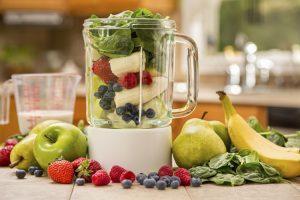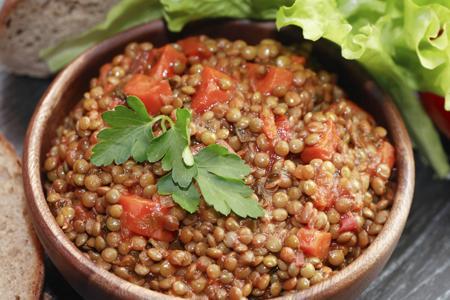Alexa Lane | Motivational Speaker and Author
Performing Arts, Natural Healing, and Spirituality
Plant Based Detox
When I speak to people about moving towards a whole food plant based diet the response is often “it makes sense, but the idea of it is overwhelming,” “how do I get started,” “how would I get adequate nutrition, specifically protein or calcium” or “do you have recipes.” The truth is that you can put aside meat and dairy and get all of your nutritional needs met on a whole food plant based diet. In fact, the American Dietetic Association states “that plant based diets are healthful, nutritionally adequate, and may provide health benefits in the prevention and treatment of certain diseases.” The key to gaining all of the benefits of a plant based diet is to consume a variety of whole, unprocessed plant based foods.
Plant Based Protein
Protein is a macronutrient that is made up of amino acids and used to build and repair tissues. Contrary to popular belief, we don’t need nearly as much protein as we are led to believe. The Recommended Dietary Allowance (RDA) is 0.8 grams per kilogram of body weight. That translates to 8-10 % of your daily calories. To find your specific requirement, divide your weight in pounds by 2.2 to convert it to kilograms then multiply by 0.8.
Additionally, research conducted by Dr. Neal Barnard, Dr. John Mcdougall, and Dr. T. Colin Campbell, all leading authorities on plant based nutrition, suggests that protein requirements are less than the RDA. Further, excessive amounts of protein, may tax the kidneys and cause calcium loss from the bones.
Getting your protein needs met is very easy on a plant based diet. The best protein sources are unprocessed and found in vegetables, beans, legumes, grains, nuts, and seeds. In general, soy and other plant concentrates are best limited in the diet or just avoided altogether. These are often found in frozen “meat substitute” products.
Plant Protein Rich Meal Ideas
Beans are incredibly versatile. When you mash beans up you change the texture and create a great base for plant based burgers, patties, and sauces. They are inexpensive and varied in both flavor and texture. Although concentrated proteins are to be avoided, tempeh, tofu and seitan (wheat gluten) are all lightly processed and are very versatile protein and carbohydrate sources used in moderation.
Plant Based Calcium
Calcium is a nutrient that is important for bone health. Plant based food sources that are rich in calcium are green leafy vegetables like kale, broccoli, spinach or collard greens, and beans. If calcium is a concern for you, it’s interesting to note, the absorption of calcium is higher in most leafy greens and plant foods than in dairy products without the added fat or potential allergens. For example, a quarter cup of raw green soybeans has as much calcium as about a half a cup of 2% milk.
Additionally, there are plenty of plant based dairy alternatives that are fortified with calcium. Beyond nutrition, one of the best ways to build strong bones is through weight bearing exercise, especially in adolescence.
Complex Carbohydrates as a Foundation for Meals
Here is a myth buster for you: Carbohydrates are not the enemy. Carbohydrates are a compound made of simple sugars and are the main energy source of the cells. However, not all carbohydrates are created equal. Complex carbohydrates are the healthiest choices found in grains, legumes, potatoes, fiber, fruits, and starchy vegetables. Simple carbohydrates such as fructose, table sugar, lactose, and refined white grains should be limited or avoided. If you are sensitive to gluten, here are few gluten free grains to try: amaranth, buckwheat, corn, millet, oats, quinoa, sorghum, teff, and rice. You may also like bean pasta.
When preparing a meal, let complex carbohydrates be the foundation of the dish. These foods will provide satiety and the energy the body needs.
Low Fat versus High Fat
Fat is a macronutrient and is needed in the diet. Currently, fat is such a hot topic in discussions regarding nutrition that there is a lot of confusion. Questions usually center on, how much fat and what kind? Certainly, you can get all the fat your body needs from plant based sources.
In regards to how much fat, we advocate for a low fat, whole food approach. With that idea in mind, all oil and pure fat products are man-made and have no nutritional value. For example, whole olives, soybeans, and corn contain many nutrients, but the oil made from these foods is mostly fat. Meaning there is no nutritional benefit to adding oil to your food beyond adding extra fat and calories. In general, a tablespoon of oil adds about 120 calories to meals. Our suggestion is to consume the whole food and limit or exclude oil from your diet.
In terms of the kinds of fats that are required for health, we need to consume two types of essential fatty acids called omega-3 and omega-6.
The body can synthesize all other types of fat, but our diets need to provide these two. Plant based sources for omega-3 and omega-6 fatty acids include flaxseeds, chia seeds, walnuts, leafy vegetables, and beans.
- If weight loss is a concern, limit fat intake. Avoid oils when cooking. Read food labels thoroughly to make sure there is little to no added oils.
- Avoid processed foods and “fake” processed soy products such as isolated soy protein. If you are considering soy products, choose tempeh, edamame, miso or tofu.
- To facilitate the sauté process without oil, use nonstick cookware. I recommend ceramic nonstick (or similar non ptfe or pfoa cookware)
- Dark leafy greens have an amazing nutritional profile and are a great source of vitamins and minerals. They can be prepared alone or in combination with beans and or any sauces.
- Whenever possible choose organic to avoid pesticides.
- Chose high fiber foods such as beans, vegetables, fruits, and whole grains.
- Foods high in fiber will provide satiety and help maintain a steady blood sugar.
Plant Based Detox Recipes
Enjoy the recipes below as a delicious, healthy, and light cleansing menu. The antioxidants, vitamins, and minerals will help you feel and look beautiful inside and out.
Breakfast
Power Berry Smoothie
- 1/2 cup Blueberries, Raspberries, or Strawberries
- One whole Apple, chopped
- Three Medjool dates, pitted
- One tablespoon Chia Seeds
- Two tablespoons Almond Butter
- One teaspoon Maca root
- One cup spinach
- 1 cup Water
- ½ Banana (optional)
Blend until smooth and Enjoy!
Lunch
Kale Salad
Kale is loaded with health-promoting goodness. It is an excellent source of vitamins A, C, K, and Omega-3 fatty acids.
Try this delicious Raw Kale Salad and fat-free dressing. Enjoy!
- Take two bunches of kale and soak them in clean water, removing the center stem from the leaves.
- Discard the stems and chop up the kale leaves and dry in a lettuce spinner.
- Combine half an avocado and one-half of a lemon and actively rub and combine into the chopped kale in a large bowl.
- Add additional vegetables such as chopped tomatoes, carrots, cucumbers – as desired
- To create a full meal you can add or combine any of the following healthy starches:
- Smashed chickpeas with some paprika, salt, and dill
- Brown rice, chopped oven baked potatoes, or toasted whole grain bread chunks
Fat-Free Dressing:
- Blend lemon juice or apple cider vinegar, mustard, salt, and pepper. Optional white miso, nutritional yeast
- Add the dressing to the salad or serve on the side.
Dinner
Lentil Barley Soup
I recommend making a large pot of soup and freezing the extra. This soup is low fat and very satisfying. It is a meal in itself or you may serve it with a side of vegetables or salad.
Ingredients:
- 2 cups French lentils. (You can substitute or include green and red lentils if desired)
- 1 cup of pearled barley
- Several stalks of carrots, celery
- 1 chopped onion
- Chopped garlic (optional)
- Chopped green, red, or poblano pepper
- Large can of chopped tomatoes
- 3 tablespoons miso paste
- 3-4 tablespoons lemon juice
- 4 tablespoons nutritional yeast (adds depth of flavor)
- salt, pepper
- 2 bay leaves, half teaspoon of dried oregano and thyme
- Red pepper flakes if desired
- 3-5 quarts of vegetable stock or broth
Cooking Directions:
- In a large pot (8 quarts) – soften the onion, garlic, carrots, green pepper and celery in a little vegetable broth.
- Make sure you pre-rinse the lentils and barley in a large bowl, removing any sediment or dirt until the water shows clear.
- Add the stock to the pot followed by the lentils and barley.
- Add chopped tomatoes as well as lemon juice, and miso paste.
- Stir and add nutritional yeast, salt, pepper and spices.
- Let the soup cook to a slow boil and then turn down the heat. Cover and let simmer until the lentils and barley are fully cooked and tender; about one to two hours.
- Occasionally stir and add more spices or liquid depending on desired consistency and overall flavor.


